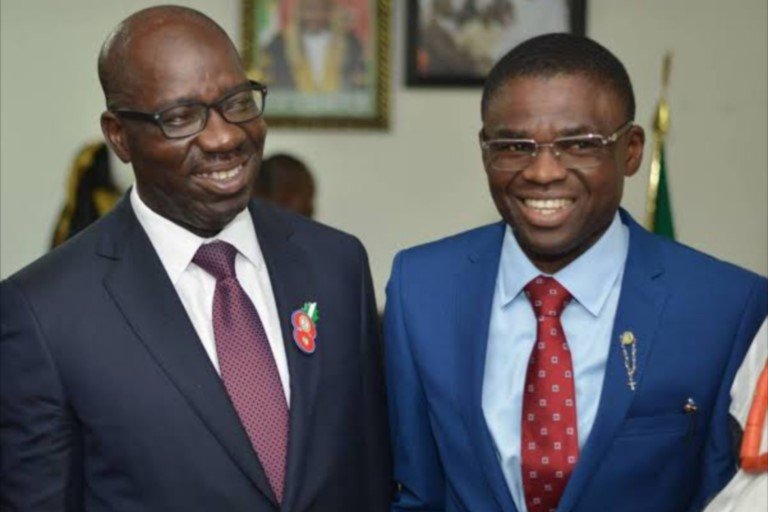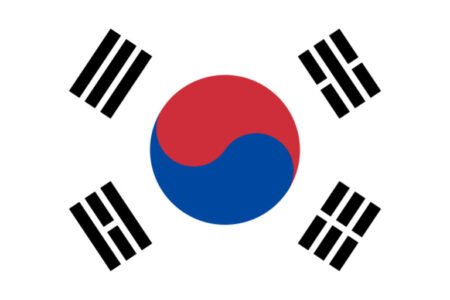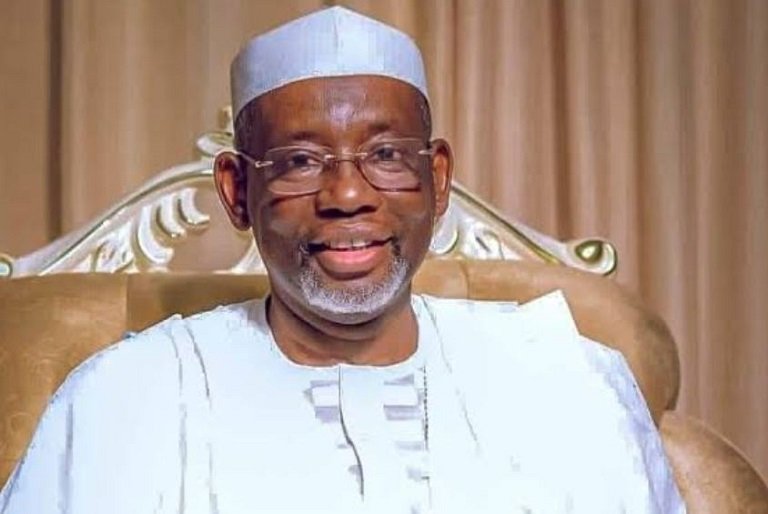A Federal High Court sitting in Abuja on Friday stopped Godwin Obaseki, the Edo State Governor, and the state House of Assembly from initiating any impeachment process against Philip Shaibu, the deputy governor of the state.
Shaibu had filed a motion on notice and a motion ex parte, praying the court to stop the commencement of an alleged impeachment process against him.
The first to fifth defendants in the suit marked FHC/ABJ/CS/1027/2023 are the Inspector-General of Police, Department of State Services, Edo State governor; Speaker, Edo State House of Assembly; and Chief Judge, Edo State.
Ruling on the motion on notice, the preceding judge, Justice Ahmed Ramat Mohammed, directed the parties in the suit to maintain “Status quo ante bellum”.
The order directs that the parties remain in the positions they held prior to Shaibu’s litigation.
The court stated that the injunction will remain in effect until the defendants show reason, as required in another judgment issued by the court on July 27, 2023.
At the proceedings, the deputy governor was represented by Moses Ebute (SAN) from the chambers of Chief Ogwu Onoja (SAN); the Speaker was represented by his counsel, Okotie Eboh; and the Chief Judge was represented by Francis Ogbe.
In his originating summons, Shaibu asked the court to rule on whether, under sections 186 and 193 of the 1999 Constitution, Obaseki had the authority to order the IGP and DSS to harass, intimidate, molest, and prevent him from accessing his office to carry out his constitutionally guaranteed duties.
He also asked the court to rule on whether the governor had the authority to request that the Speaker and Chief Justice initiate impeachment proceedings against him in order to remove him from office for reasons other than allegations of misconduct, as stated in Section 188 of the 1999 constitution.
The deputy governor also asked the court to rule on whether, under Section 193 of the 1999 constitution, Obaseki can deliberately refuse to allow him to work alongside him or inform him of the State Executive Council meeting or any other meetings or functions within and outside Edo without violating the express provision of the law.
He also asked the court to declare that Obaseki, the Speaker, and the Chief Judge lacked the authority to impeach him on any grounds other than gross misconduct and that the Speaker and the Chief Judge lacked the authority to convene a seven-member panel of inquiry on the same grounds.
Among other things, Shaibu sought an injunction prohibiting the IGP, DSS, and Obaseki, as well as their agents and privies, from harassing, shaming, intimidating, or obstructing him from carrying out his legitimate tasks.
He also requested an injunction prohibiting Obaseki, the Speaker, and the Chief Judge from taking any action, plan, or step in the impeachment process, as well as another order prohibiting the Chief Judge from taking instructions from Obaseki and the Speaker to convene any panel of inquiry for the purpose of impeaching him.
Despite Ogbe and Eboh opposing the grant of Shaibu’s request, the judge, however, ruled in Shaibu’s favor.
Following the ruling, the judge adjourned the hearing till Thursday, August 10, and ordered that the IGP, DSS, and Obaseki, who were not represented in court, be served with hearing notices.











